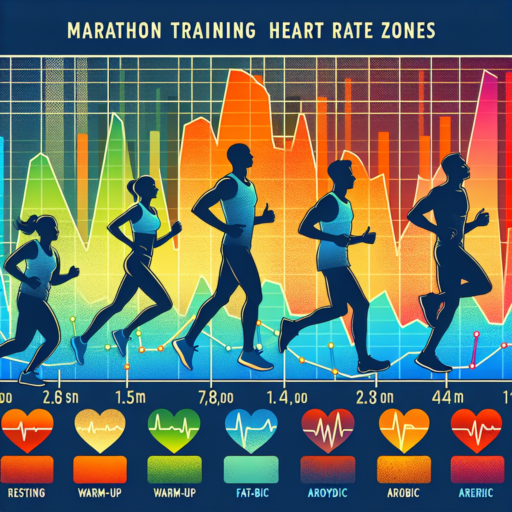The Ultimate Guide to Training for the New York Marathon
Training for the New York Marathon requires a dedicated and strategic approach to ensure you are at your peak performance come race day. This ultimate guide is designed to walk you through the essential phases of preparing for one of the world’s most famous marathons. From building a solid base to fine-tuning your race strategy, we’ll cover the critical components that make up a successful training plan.
Building Your Foundation
Before embarking on specific marathon training, it’s crucial to establish a strong aerobic base. This means gradually increasing your weekly mileage at a comfortable pace where conversation is possible, typically over a period of several months. Focus on consistent, injury-free running, incorporating rest days to allow your body to recover and adapt. This foundation phase is the bedrock of your marathon training, setting you up for more intense workouts.
Introducing Speed and Endurance Workouts
As your training progresses, incorporating speed work and long endurance runs becomes essential. Intervals, tempo runs, and Yasso 800s can enhance your aerobic capacity, making marathon pace feel more comfortable. Simultaneously, weekly long runs that gradually increase in distance prepare your body for the endurance it will need on race day. Aim to complete at least one 20-mile run before tapering; this is crucial for mental and physical preparedness.
Recovery and Nutrition
Recovery is just as important as the runs themselves. Ensure you are giving your body ample time to heal and strengthen between workouts. This includes quality sleep, stretching, and possibly even yoga or pilates for flexibility and core strength. Equally, nutrition plays a pivotal role in your training. A balanced diet rich in carbohydrates, proteins, and fats, along with proper hydration, will fuel your body for both training and the marathon itself. Tailoring your nutrition to your training can dramatically improve your performance and recovery time.
No se han encontrado productos.
Creating Your NYC Marathon Training Plan: A Step-by-Step Approach
Preparing for the NYC Marathon requires a thoughtful and well-structured training plan to tackle the iconic 26.2 miles with confidence. Embarking on this journey requires a step-by-step approach to gradually increase your endurance, strength, and running efficiency. Whether you are a first-timer or looking to set a new personal record, certain key steps are universal in crafting an effective training plan.
Assess Your Current Fitness Level
Before diving into training, it’s vital to evaluate your current fitness level. Understanding where you stand physically will help you tailor a training plan that is challenging yet achievable. Begin by setting a baseline—consider factors such as your recent running history, any existing injuries, and your overall physical condition. This initial step ensures that your NYC Marathon training plan is built on a realistic foundation, preventing overtraining and injuries.
Build a Diverse Training Schedule
An effective NYC Marathon training plan is not solely about running. Incorporating variety—such as strength training, cross-training, and rest days—is crucial for a well-rounded preparation. Strength training enhances your muscle endurance and injury resilience, while cross-training activities like cycling or swimming improve overall cardiovascular health without the added impact on your joints. Remember, rest days are equally important; they allow your body to recover and become stronger. Creating a balanced schedule that promotes gradual improvement is key to arriving at the marathon’s starting line in top condition.
Top 5 Mistakes to Avoid in Your New York Marathon Preparation
Preparing for the New York Marathon requires dedication, strategy, and awareness of common pitfalls. Below, we highlight the top five mistakes marathon runners often make during their preparation. Avoiding these errors can significantly elevate your training and race day performance.
1. Neglecting Nutrition and Hydration
Many runners underestimate the importance of proper nutrition and hydration. It’s essential to focus on a balanced diet that supports your training regimen and to stay hydrated. Avoid the mistake of making significant dietary changes close to race day, as this can disrupt your digestive system and affect your performance.
2. Overlooking Rest and Recovery
In the zeal to clock in more miles, runners often forget the importance of rest and recovery. Sufficient sleep and rest days are crucial for muscle repair and to prevent overtraining, which can lead to injuries or burnout. Remember, your body gets stronger during periods of rest, not when you’re relentlessly pushing it.
3. Ignoring Injury Warning Signs
Pushing through pain can lead to more serious injuries, derailing your marathon plans altogether. It’s vital to listen to your body and address minor aches and pains before they evolve into significant issues. Consult healthcare professionals if you experience persistent pain or discomfort.
Weekly Workout Schedule: Preparing for the New York Marathon
Preparing for the New York Marathon involves a meticulously planned weekly workout schedule that balances intensity with recovery. This journey towards the marathon day involves understanding the essence of progression and periodization in your training regime. Let’s break down how an optimal week should look for novice and intermediate runners aiming for marathon success.
Building Endurance: The Foundation of Marathon Training
Endurance is the backbone of marathon training. Initially, your weekly schedule should focus on gradually increasing your long run distances. Sunday is an ideal day for long runs, as you might have more time to recover afterward. Beginning with a comfortable distance that challenges you without causing exhaustion, increase the mileage by 10% each week. Incorporate recovery days after intense sessions to allow your muscles to repair and grow stronger. Tuesdays and Thursdays can feature shorter, recovery-focused runs to maintain momentum while giving your body a chance to rest.
Speed and Strength Workouts: Gearing Towards Performance
Integrating speed work and strength training into your weekly workout schedule is crucial for building the ability to sustain a goal pace over the marathon distance. Wednesday’s workouts should include intervals or tempo runs that replicate marathon pace or slightly faster. This not only improves your speed but also your body’s efficiency in using oxygen. Moreover, dedicating at least two days – such as Monday and Friday – for strength training focusing on core, leg muscles, and flexibility can significantly enhance your running economy and reduce the risk of injuries.
Active Recovery and Rest: Balancing the Scale
Rest days are as important as training days in a marathon preparation schedule. Integrating at least one day of complete rest – preferably Saturday, prepares your body for the upcoming week’s workload. Active recovery sessions, like light jogging, yoga, or swimming on days such as Thursday, help in loosening tight muscles and improving overall body condition without adding undue stress. These elements combined ensure that you step into the next week fully recovered, rejuvenated, and ready to tackle higher training volumes and intensities.
Nutrition and Hydration Strategies for Marathon Training
Embarking on marathon training requires more than just dedication to running; it necessitates a comprehensive plan for nutrition and hydration to fuel the body adequately. A strategic approach to eating and drinking can significantly impact performance, recovery, and overall health. This guide outlines essential strategies to maintain optimal nourishment and hydration levels throughout your marathon training journey.
Understanding Your Nutritional Needs
Marathon training amplifies your body’s demand for a well-balanced diet rich in carbohydrates, proteins, and fats. Carbohydrates are the primary fuel source for long-distance runners, as they provide the glucose needed for energy. Incorporating a variety of whole grains, fruits, and vegetables into meals ensures a steady supply of carbs. Meanwhile, proteins are crucial for muscle repair and recovery; lean meats, legumes, and dairy products can fulfill these needs. Don’t overlook the importance of fats, especially those from avocados, nuts, and seeds, which support sustained energy levels and nutrient absorption.
Hydration Before, During, and After Runs
Proper hydration is paramount for marathon runners, affecting everything from performance to recovery time. Begin hydrating well in advance of your run to establish a hydration base. During long runs, aim to consume approximately 7-10 ounces of water every 20 minutes. If running for more than an hour, consider a sports drink to replenish electrolytes lost through sweat. Post-run, restore fluid balance by drinking water or an electrolyte solution, paying close attention to your body’s thirst cues and urine color—an indicator of your hydration status.
By incorporating these nutrition and hydration strategies into your marathon training, you can optimize your performance, enhance recovery, and reduce the risk of injury. Remember, individual needs can vary based on factors like body weight, environmental conditions, and intensity of the training sessions. Consulting with a sports nutritionist can provide personalized guidance tailored to your specific requirements and training goals..
The Importance of Recovery in Your NYC Marathon Training
Training for the iconic New York City Marathon requires a harmonious balance between rigorous workouts and diligent recovery periods. Many athletes focus intensively on their running schedule, often overlooking the critical component of recovery. However, integrating adequate recovery time is essential for enhancing performance, preventing injuries, and ensuring you’re physically and mentally prepared for the race day.
Why Recovery is Key to Marathon Success
Recovery should be an integral part of your NYC Marathon training plan as it allows your body to repair itself from the stress of intense workouts. During rest periods, your muscles heal and grow stronger, preparing you for the increased demands of the next training session. Moreover, recovery isn’t just physical; it’s also about mental rejuvenation, giving you the mental break needed to maintain focus and motivation throughout your training journey.
Optimizing Recovery Strategies
- Active Recovery: Incorporate light activities such as walking or yoga on your rest days to promote blood circulation and aid muscle repair without overexerting your body.
- Nutritional Support: Consuming the right balance of nutrients after workouts can significantly speed up recovery. Focus on foods rich in protein, vitamins, and minerals to rebuild muscle tissues and replenish energy reserves.
- Sleep and Hydration: Never underestimate the power of a good night’s sleep and staying hydrated. Both are crucial for a comprehensive recovery and can dramatically improve your training outcomes.
Running Gear Essentials for Your New York Marathon Training
Training for the New York Marathon requires not just dedication and hard work but also the right gear to enhance your performance and keep you safe on the long runs ahead. Understanding the crucial running gear essentials can make your training sessions more effective, preventing injuries while helping you stay comfortable regardless of the weather conditions. From the shoes on your feet to the hydration systems on your back, every piece of gear plays a pivotal role in your marathon training success.
Choosing the Right Running Shoes
At the core of any marathon training kit is a reliable pair of running shoes. Picking the right pair goes beyond just comfort; it’s about finding shoes that can support your foot type, running style, and the variety of terrains you’ll encounter while training in New York. Shoes with adequate cushioning, stability, and a good fit will not only enhance your running efficiency but also minimize the risk of injuries, ensuring you reach the starting line in top condition.
Effective Hydration Solutions
Staying hydrated during your long training runs is critical, especially when tackling the varied climates of New York. An effective hydration system—whether it’s a handheld water bottle, a belt with multiple water bottle holders, or a hydration pack—ensures you can carry enough water without affecting your performance. Integrating hydration solutions that are convenient and easy to use will keep you running longer distances without the need to stop for water breaks, a crucial advantage during your marathon preparation.
Remember, each piece of running gear you choose should complement your training, offering both comfort and functionality. As you prepare for the New York Marathon, paying close attention to these gear essentials will help pave the way to a successful and rewarding race day experience.
Mental Preparation: Getting Psychologically Ready for the Big Race
The importance of mental preparation cannot be overstated when it comes to getting ready for a big race. Although the physical aspect of training often takes center stage, honing your psychological resilience is equally crucial. This involves cultivating a mindset that can navigate the pressures and challenges that accompany competitive racing.
One key aspect of mental preparation is visualization. This technique involves vividly imagining yourself succeeding in your race, going through every step, turn, and sprint with confidence and control. Visualization not just prepares the mind for success, but also familiarizes the body with the sensation of victory, thereby bridging the gap between mental and physical readiness.
Another vital component is setting realistic goals. Goals act as a roadmap for your training and racing strategy, providing clear milestones to aim for. These objectives should be challenging yet achievable, tailored to your current level of fitness and experience. Setting the right goals can significantly boost your motivation and focus, keeping you anchored through the ups and downs of race preparation.
Lastly, developing a pre-race routine is essential for psychological preparedness. This routine could include relaxation techniques, a specific warm-up sequence, or even a motivational mantra. The aim is to create a set of rituals that signal to your mind and body that it’s game time, thereby reducing anxiety and enhancing performance readiness. Embracing these mental strategies will ensure you’re not just physically, but also psychologically prepared to tackle the big race with confidence.
How to Tackle the New York Marathon’s Toughest Segments
Running the New York Marathon is a dream for many athletes, but it’s the race’s toughest segments that truly test a runner’s mettle. Every year, thousands lace up their running shoes, ready to tackle the challenging course that winds through the five boroughs of New York City. Knowing how to approach these daunting segments can make all the difference in your marathon experience. Here, we’ll delve into strategies and tips to conquer the most difficult parts of the race.
Mastering the Queensboro Bridge
One of the marathon’s most infamous challenges is the Queensboro Bridge, occurring around the 15-mile mark. As you approach this segment, it’s important to conserve energy. The incline can be deceiving, so maintaining a steady pace rather than attempting to speed across the bridge is key. Focus on your breathing and keep your strides consistent. Remember, what goes up must come down. Prepare for the relief of the downhill slope, but approach it with caution to prevent jarring your legs and potentially causing injury.
Conquering First Avenue
After the relative quiet of the Queensboro Bridge, First Avenue can feel like a wall of sound and energy. This is where spectators come alive, offering much-needed encouragement. However, it’s easy to get carried away by the crowd’s enthusiasm. Stick to your planned pace; resist the temptation to accelerate too rapidly and risk depleting your energy reserves too soon. Breaking down First Avenue into smaller segments mentally can make it more manageable. Look for landmarks or use hydration stations as mini-goals to keep your focus sharp.
Success in the New York Marathon isn’t just about covering 26.2 miles; it’s about mastering the course’s formidable segments. By entering these sections with a strategy, maintaining discipline in your pace, and focusing on efficient recovery, runners can confront these challenges head-on. Embrace the crowd’s energy, respect the marathon’s demands, and remember—every step forward is a step closer to conquering the New York Marathon.
Community and Support: Joining Running Groups in NYC for Marathon Prep
Preparing for a marathon is an exhilarating but formidable journey, one that thrives on support, motivation, and camaraderie. In New York City, a melting pot for athletes and dreamers alike, joining a running group can be a transformative step in your marathon preparation. Here’s why integrating into the NYC running community can make a significant difference.
Exchange of Techniques and Training Tips: The first thing you’ll notice upon joining a New York City running group is an immediate influx of knowledge. From seasoned marathon runners to certified trainers, NYC running communities are rich with experienced individuals enthusiastic about sharing their training tips, nutrition advice, and recovery techniques. This environment fosters a learning culture that benefits beginners and experienced runners alike, aiming to improve their marathon performance.
Adjusting to the Marathon Mindset
Beyond the physical aspect, marathons require a strong mental fortitude—a mindset that is cultivated well within the hearts of running communities. In NYC, the spirit of endurance and persistence permeates through each group, providing a backbone of psychological support. Encouragement from group members, shared goals, and the collective excitement for upcoming races can significantly enhance your mental preparation for marathon day.




